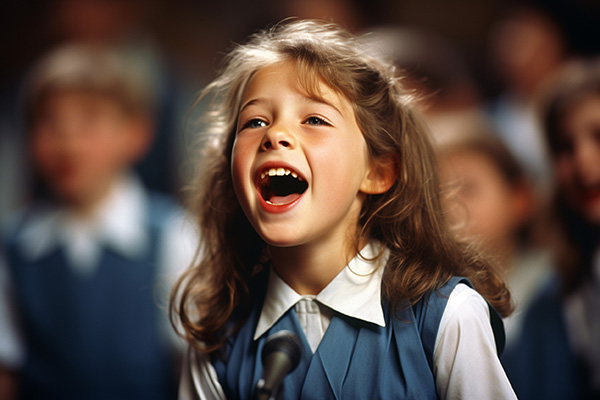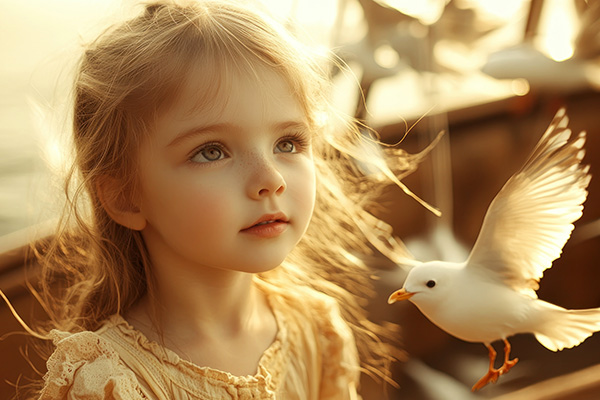childhood
The History And Hidden Blessings Of Halloween

As a child, I remember getting excited about dressing up as a witch on Halloween and enjoying all the treats, like toffee apples and spooky cakes, that my mom used to make.
But one year, my father ruined the holiday for me when he explained his views on the significance of Halloween to me. I was just 10 years old, and it upset me.
Because of his religious beliefs, my father then forbade my siblings and me from celebrating Halloween. This made us feel excluded from our community as we watched other children dress up and enjoy themselves.
As an adult, I learned that it was not the event itself that was the issue, but rather the assumed F.E.A.R. behind it: False Evidence Appearing Real.
Remembering those times recently, I was prompted to take another look into the origin of this holiday tradition and what it truly stands for.
On 31st October each year, the Celtic pagan festival known as Samhain is celebrated, symbolizing the end of the harvest period and the start of the winter season, sometimes referred to as the “darker half” of the annual 12-month cycle.
Long before it became a night of costumes and candy, it was a sacred festival rooted in ancient spiritual tradition. The celebration we now know as Halloween traces its origins to Samhain (pronounced Sow-in), a Gaelic festival that marked the end of the harvest and the beginning of the dark half of the year.
Reclaiming The Voice Of Your Inner Child
 I always sing with my yoga students at the end of class. I used to work in the entertainment industry as a singer, dancer, and actress. Because of that, I feel confident singing in front of people.
I always sing with my yoga students at the end of class. I used to work in the entertainment industry as a singer, dancer, and actress. Because of that, I feel confident singing in front of people.
Growing up, I was always full of joy despite my dysfunctional and rather glum family. Of course, they didn’t appreciate my natural exuberance. They certainly didn’t like that I sang all the time because it represented a lightness of being they had long since given up on.
Like many dysfunctional families, they put me down all the time. They told me that I couldn’t sing and that I sounded awful. But, as with all the other negative, hurtful things they tried to convince me of, I did not believe them.
I kept singing anyway, which irked them. I continued to sing and dance, and I even wrote, produced, directed, and starred in my own musical when I was eleven.
Now I’m not saying I had a good voice as a kid. I really don’t know if I did. But, loving to sing, some voice lessons and lots of joy certainly helped me become a relatively good singer.
One day, after my yoga class, a student came up to me and told me I had a beautiful voice. I thanked her. I often have people compliment my singing voice after class.
The student then told me her family told her she had a bad singing voice when she was a child so she stopped singing. She then mentioned other abuses she received by her cruel family.
The Timeless Magic Of Nature Spirits And Elementals
 As a youngster growing up in the UK, I loved visiting a neighbor, Mrs. O’Leary, whose lilting Irish voice still echoes in my mind. She spoke often of the “Good People” and acknowledged their presence in her home and garden. I recall her taking us outside to witness her making small offerings to these unseen little mystical beings.
As a youngster growing up in the UK, I loved visiting a neighbor, Mrs. O’Leary, whose lilting Irish voice still echoes in my mind. She spoke often of the “Good People” and acknowledged their presence in her home and garden. I recall her taking us outside to witness her making small offerings to these unseen little mystical beings.
Though it feels like a distant memory now, I can still recall seeing them, too. Perhaps they appeared to us because we truly believed, or perhaps because Mrs. O’Leary invited them to show themselves.
Whatever the reason, those moments left a lasting impression. To me, it felt like truly being “in my element,” fully connected to the hidden, magical forces of nature.
I vaguely recall a magical moment in Mrs. O’Leary’s garden when she pointed out to me a tiny, translucent little figure perched on a large moss-covered rock at the base of her prized old hawthorn tree. With delight, she described how this “little person” was waving at us and encouraged me to wave back. Standing there with awe and intrigue, I became aware of what seemed like hundreds of luminous sprites dancing in the glistening water below.
Despite all the cynicism of a technologically driven world, increasingly devoid of the many miracles and wonders of nature and the unseen realms, Mrs. O’Leary and the spirits of nature still remind me of the healing, transformative power that lies in reverence, stillness, and everyday magic.
Honoring Yourself In Difficult Family Relationships
 Family dynamics can be tremendously complex for many of us. These relationships are multilayered and deeply ingrained, often playing out across generations.
Family dynamics can be tremendously complex for many of us. These relationships are multilayered and deeply ingrained, often playing out across generations.
Many of my clients seek psychic insight about family matters. After matters of love and romance, and then business or career, family is often the most emotionally charged subject.
In readings, especially with empaths, intuitives, and highly sensitive individuals, I hear countless stories of family pain. Many carry a sense of never belonging, of being misunderstood or scapegoated.
These emotional burdens are often the heaviest that people bear because they are tied to the people they loved first and still love, despite the hurt.
When control or finances are interwoven into the family structure, the complexity of these relationships multiplies.
For many, family represents a love-hate relationship or a deep bond that carries deep wounds. While we cannot choose our family, we do have a say in how we interact with them, how we respond, and whether we continue to engage.
Severing family ties is a significant and often heartbreaking decision that is never taken lightly. By the time someone considers taking this step, the drama or emotional abuse has often been ongoing for decades and is sometimes rooted in a vividly painful childhood.
Your Future Child May Be Closer Than You Think
 One of the most meaningful connections I have been able to make as a psychic since I was very young is that between a mother and the soul of her future child.
One of the most meaningful connections I have been able to make as a psychic since I was very young is that between a mother and the soul of her future child.
For example, I remember seeing a three year old child (for some reason I almost always envision them around that age) playing next to a sixteen year old classmate when I was still in high school.
Six months later, that classmate left school because she was pregnant. I remember chalking it up to mere coincidence. At that time, I was still coming to terms with my psychic abilities and often doubted them.
Over the years, however, it has happened so often that I no longer question it. I now know that I see unborn souls connecting and acclimating to the energy of their future mothers.
Interestingly, I have never seen this connection with fathers. Perhaps it is because the soul needs to align with the body and energy of the mother as the two will soon merge?
One experience that stands out is with one of my friends. Her husband had been married before and had a son from his first marriage, as well as a son with her. She desperately wanted another child, but he was adamant that they couldn’t afford it. He also believed he could only have boys and wasn’t interested in trying for another.
One night we went to a local play together. My friend is blonde, fair-skinned, and blue-eyed, while her husband has black hair, brown eyes, and dark skin. During the play, I suddenly saw a little girl playing on the carpet next to her. As soon as we had a chance to talk, I told her what I had seen.
Find Your Peace In The Present Moment
 A theme that comes up frequently in psychic readings is how people inadvertently choose to live in the past, finding comfort in nostalgia or reliving painful memories that keep them tied to an earlier time. The past is often romanticized — a seemingly simpler, happier place, free from the burdens of the present.
A theme that comes up frequently in psychic readings is how people inadvertently choose to live in the past, finding comfort in nostalgia or reliving painful memories that keep them tied to an earlier time. The past is often romanticized — a seemingly simpler, happier place, free from the burdens of the present.
For those who had a happy and idyllic childhood, the past may seem like a golden era. They fondly recall carefree days filled with laughter, unconditional love, and the security of knowing that someone else was responsible for making the big decisions.
These people long for the innocence of childhood, the guidance of loving parents, the support of trusted mentors, and simpler times. It can be a source of comfort, but it can also prevent them from fully embracing the possibilities of the present.
For others, the past is a dark and painful landscape filled with trauma, regret, or missed opportunities.
Some people carry deep emotional wounds from their past. Perhaps they grew up in an environment of neglect, conflict, or abuse. Instead of a safe and nurturing childhood, they experienced hardship, pain, or betrayal.
Bad memories, deeply etched in the soul, can feel like an unshakable burden. Those who have suffered often relive their trauma, carrying resentment and anger toward those who wronged them. For these people, the past is not a place of comfort, but a source of suffering that continues to affect their daily lives. Continue reading
